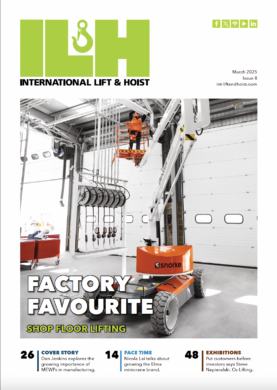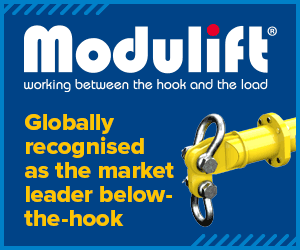)
The Class of 2020
We can waste a lot of time worrying about, and planning for things we can’t control, says Doug Stitt, the president and CEO at The Caldwell Group Inc.
Don’t let 2020 go to waste. This is our year. I’m serious.
A long time ago I was a pre-med student at university, before I eventually chose business and football (sorry, Mom!). Things didn’t turn out too bad though, which is really the point, not only of this article, but of pandemic life in business generally. It’s not for me to decide if I’m living proof, but parents can worry about their kids too much. They fret about speed of development, test results, friendship groups, lifestyle, partner choices, and career paths. And that’s just in the mornings.
Business leaders do the same thing, as Covid-19 proves.
Most companies pressed the panic button in the spring and, while I understand why (I was hovering over it, myself), many needn’t have worried. This era is no joke, for those in some settings more than others, but we will get through it and most people have demonstrated that they’re more resilient than they thought.
Businesses that were able to show decisiveness and clarity of mind in the spring are certainly better off now. Moving forward, our collective mindset should be centred more on how well we’ve all done, versus how we could have prepared or reacted differently. We’re wiser now, of course, but I’ve learnt more about what I already had than what I was missing. I’ll explain.
As my flirtation with the medical profession reveals, I have always loved science and still gravitate towards scientific literature and articles. However, even with that kind of orientation, only a very unique and thoughtful person could have seen the events of this year coming. And even they would have struggled. Not only was this a shock of record proportions, it was one that potentially could have been controlled if not for human error. How do you plan for that? Honestly, I’m glad we weren’t prepared. Think about the pessimism that would have circulated around the boardroom and shop floor at a business preparing to shield from 2020. Do you look at doomsday preppers and admire their foresight?
Businesses and their plans to some extent must be based on the optimism of success rather than the possibility of 100-year events. Further, most firms, particularly those in more industrial sectors and markets, assume that there will be unwelcome interruptions and factor these into their plans for prosperity. And in those types of extraordinary times, there has to be some reasonable assumption that larger forces, such as government, will intervene.
Like most businesses, we didn’t have a disaster recovery plan for this type of severe economic contraction and social interruption. We weren’t carefree though; we did have a ‘trough plan’ that was built after the 2008 financial crisis that we quickly modified and updated so it would more appropriately fit the Covid environment. The quick and decisive action that came from that planning process and the related execution allowed us to get a great jump on the coming challenges. It has still been painful but being decisive greatly reduced the amount of impact. We were able to move past survival mode quickly into what do we need to do to be successful on the other side of this. That’s where we are now. We’re committed to not allowing 2020 to be a lost year and are working and planning accordingly.
Covid currency
So what does a rebounding business look like in a pandemic? It’s probably got a strong grip on cash, inventory, review processes, delegation, and communication. Some of that the company would have already been adept at, and other skills have been sharpened, as we’ll explore.
First, if it wasn’t before, cash is king, so cash management has been and will continue to be important. Every business that was looking forward made quick decisions to amp up their cash any way possible. You saw this in the large companies globally as they buffered cash positions by issuing bonds. Some of those businesses are now retiring those bonds early as they realise that they didn’t need that much cash.
At the time though, how did you know? For small to medium-sized companies, hopefully they already had a decent relationship with their banker and could start talking about what the options were if required. Many companies who didn’t have a relationship with their bank already had some struggles, particularly as they tried to get in line early for the Payroll Protection Plan (PPP).
One of the things that starts to happen in these situations is that you see folks starting to pay their payables slower to help with cash management. That’s why it’s important, particularly in times like this, to make sure you are holding the line on your receivables (claims for payment held for goods or services that customers have ordered but not paid for).
In the period prior to Covid, due to some turnover in our financial group, we had seen that our receivable collection processes and procedures had become a little lax. Therefore, fortunately, we were already in the process of tightening up our accounts receivable so we had a head start on that part of our cash management. We also participated in the government’s PPP programme and outlined a number of strategies with our bank to help boost cash and minimise drain, but to date have not had to execute any of those.
One of our other areas of focus, which also has a direct impact on cash, is inventory. Probably like most companies, we quickly refined our inventory levels in anticipation of the drop in demand. As business levels stabilised, instead of simply starting to rebuild inventory levels, we used the time and resources to review what those inventory levels should be going forward and looked at whether or not certain items should remain in stock, or if there are other items not in stock that should be.
Year in review
As we’ve all discovered, at home and work, a pandemic presents an opportunity to review activities that you know should be done regularly but are often difficult to do when businesses are busy. Some companies have already been forced to partner and others will follow. It was important for us to maintain financial stability and strength so we could make decisions on investment and ownership independent from the Covid-impacted economic contraction.
As a business looks at its mentality, cash, inventory and other systems, action and delegation points will be created. As a functioning business, these should be dealt with seamlessly as, in essence, a successful company generates such activity all the time. When our plan was finalised, it was pretty easy for folks to understand what the plan was and why. This was important as some of the steps for personal protective equipment (PPE), for example, were actually ahead of what our state’s mandates were.
Financially, we already operate with what we call an ‘open book’ policy so our team from top to bottom has been seeing company financial information for years. Therefore, it was fairly straightforward to show what the financial impacts were, why we needed to implement the plans we did, and how the execution would help address the current circumstances.
Again, good communication practices are something that you hope to have built before these unique events, because once the challenges hit, you need to be able to communicate quickly and effectively. To go along with that, communicating truly relevant information is critical as it builds credibility. In cases where companies are simply sending out communications that say, ‘We’re still here and we’re washing our hands,’ is not ideal and customers and vendors start to disregard those sources. Part of that is knowing who your customers and vendors are and what kind of information they need and value.
In conclusion, the Lesson of 2020 has taught us a lot, but we do need certainty and clarity sooner rather than later. Governmental policy, or lack thereof, and little detail about economic factors, all make it difficult for businesses to plan. Thus, the importance of focussing on what you can control and making this time valuable is even more magnified.
Tech talk
Technology was already changing the world, but it felt like 2020 was the year when we became the most grateful for our IT departments—at least the good ones. Within days my company was able to move financial, sales, marketing and engineering folks offsite to work remotely, and we didn’t miss a beat. We knew of good companies that weren’t able to go remote so efficiently because they hadn’t focused on IT infrastructure, while a lack of historical investment meant they weren’t prepared for a shock of this magnitude. Some firms even struggled to do simple things like access information digitally or even forward telephones. Within a week of moving folks offsite, we set up an internal company-wide chat tool that we called LiftChat, allowing people to message each other seamlessly. Actually, we realized we were more tech savvy than we thought.
We also spent more time on refining and expanding the use of our enterprise resource planning (ERP) system. This will pay dividends going forward as more people are up to speed on the system and we have greater access to better data in the future. Inventory management is a good example of wanting to manage things better so we refined the tools and data within our ERP system to help us achieve that.











